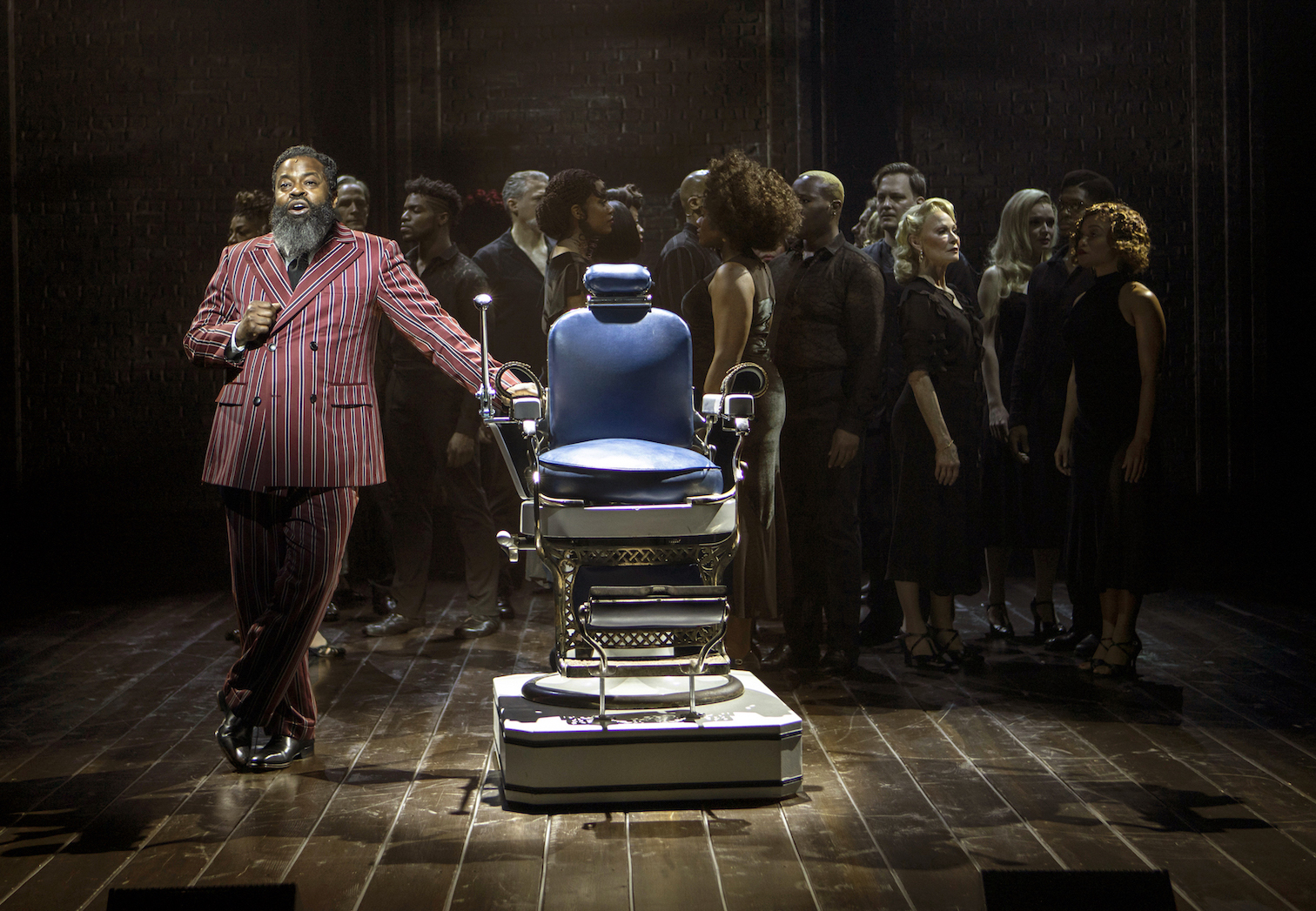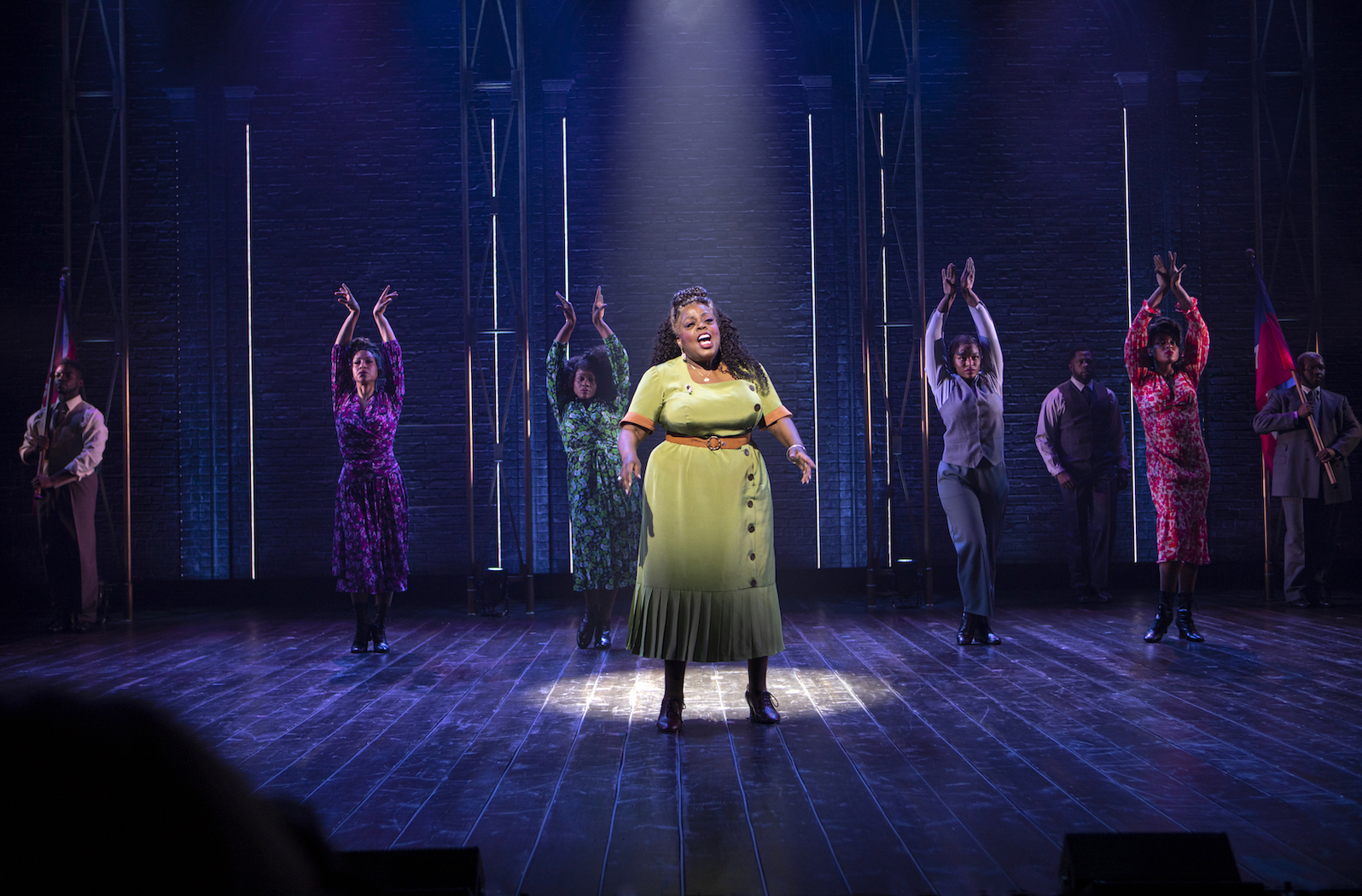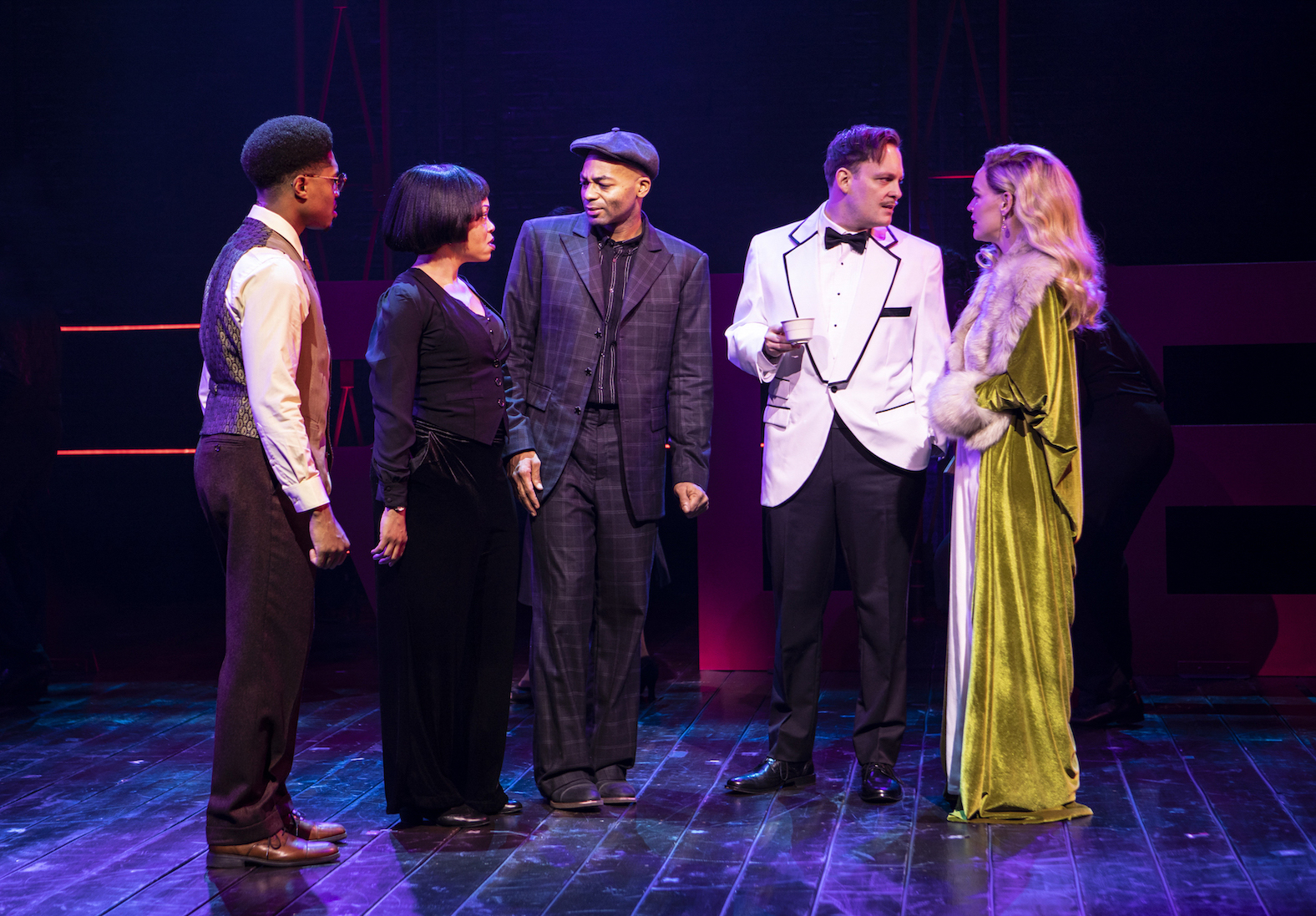****/***** 4 out of 5
Imagine, if you will, Harlem in the Prohibition Era. Black Americans are flooding into this city-within-New York City from all over the country, particularly the Jim Crow south; swing dance clubs are all the rage, many doubling as speakeasies. And, of course, racism and discrimination reign, even in the subtlest forms, with white couples coming and slumming uptown to “observe” the wild scene of Harlem’s clubs (white women dancing with black men ultimately led to the formation of New York’s racist and draconian cabaret laws that forbade dancing in bars).

Now imagine an inventor who arrives with a machine that causes vitiligo (a condition which causes skin to lose its pigment), allowing black people to become “white.” And imagine that one of the newly white black men moves to the south and becomes the leader of the KKK. Yes, this straight out of “The Twilight Zone” storyline (or Dr. Seuss, if you prefer), is Black No More, a daring and riveting new musical by Tariq Trotter (lyrics and music) and John Ridley (book), presented by The New Group and playing at The Pershing Square Signature Center through February 27.
Black No More is one of those musicals that could bear multiple viewings, so that one might catch the entirety of its clever wordplay, multiple allegorical lessons and outstanding musical numbers. The driving narrative is a cover for a commentary on the dangers of assimilation (how much is too much?) and, no doubt, on the brutal absurdity and hypocrisy of systemic and establishment-based racism. This was the Jim Crow era— essentially apartheid in everything but name—yet white fascination (or obsession) with black culture highlighted everything that was wrong with the laws and bigotry oppressing black America.
Introducing the story in a rat-a-tat, poetic rap, laying the foundation of his diabolical invention, Dr. Junius Crookman (played by Trotter), tells us his vitiligo machine is needed because, “Just in case you had forgotten/this Big Apple’s rotten. . . ‘cause in a court of law there’ll always be/ your skin there to remind you.”

Trotter’s writing is brilliant, much of it performed as rap lyrics (that harkens Lin Manuel Miranda’s iconic Hamilton lyrics) to the music of the era, from Harlem Swing Jazz to Jump Blues to early R&B, a captivating collection of songs by Anthony Tidd, James Poyser, Daryl Waters and Trotter as well.
It also doesn’t hurt to have the cast filled with remarkable performers like Lillias White, as Madame Sissereta, who brings the house down every time she’s at center stage, particularly in songs like “Lord Willing,” “What Are We to Do?” and the particularly hard-hitting “Right Amount of White.” Brandon Victor Dixon (Hamilton) is excellent as Max Disher, who falls for the southern white girl that makes him decide to give Dr. Crookman’s machine a go. His facial expressions (astonishment, apprehension, etc.) as he hoodwinks the Atlanta white supremacists (referred to here as “The Knights of Nordica”) who mistake him not just for one of their own, but a shining star among them, worthy of their grand wizard’s (or Exalted Giraw here) daughter. And Tamika Lawrence’s Buni, Max’s “anything goes” friend, is particularly compelling and believable, as she evolves through the play, moving from party girl to the serious, nurturing steward of Max’s legacy.

Perhaps Black No More’s only shortcoming is constituted by the moments that go on for a little bit too long. The musical is perfectly poised (particularly with its rather large cast) to move to Broadway, where it will no doubt meet with success with some minor changes. Director Scott Elliott, likely overwhelmed by an abundance of great material, didn’t make cuts that seem almost obvious from an audience’s perspective. The biggest problem is numbers that go on too long, to the point even of exhausting Bill T. Jones’ outstanding choreography. A much tighter version of the show will undoubtedly be a memorable and lasting production. Still, it’s worth seeing now, in its earliest stages, so that you can say you were there.
Black No More. Through February 27 at The Pershing Square Signature Center (480 West 42nd Street, between Ninth and Tenth Avenues). www.thenewgroup.org
Photos: Monique Carboni












